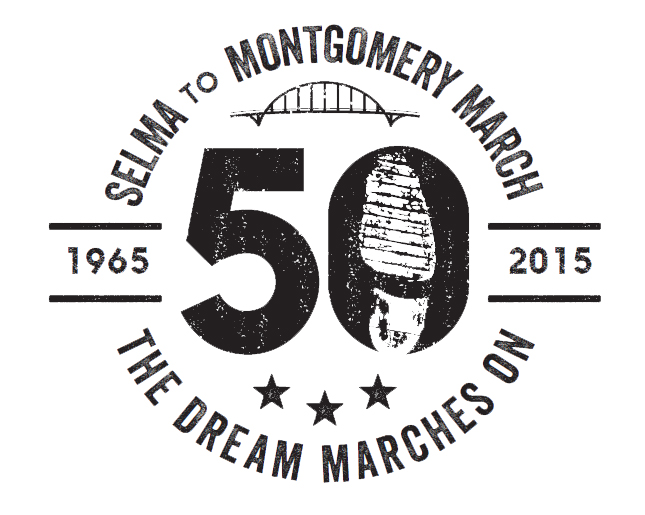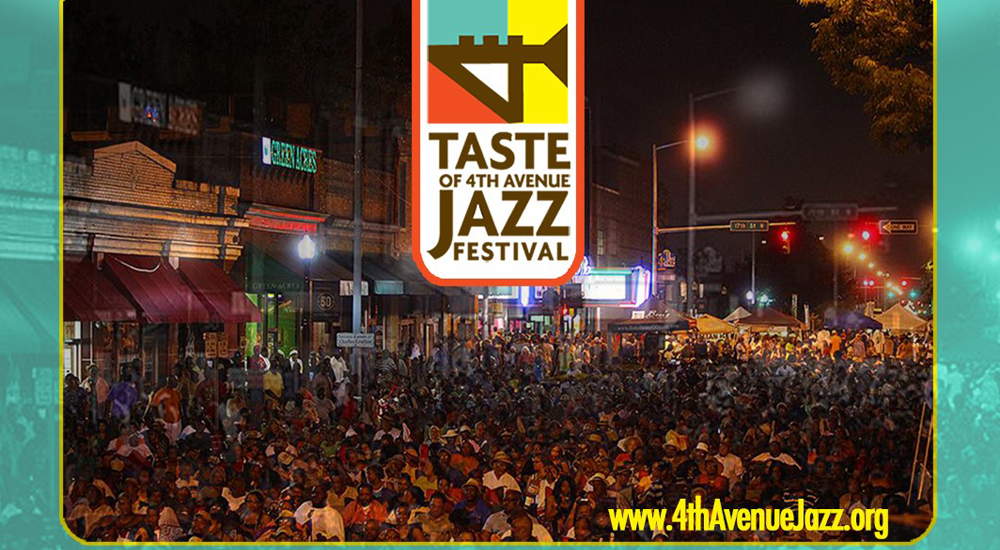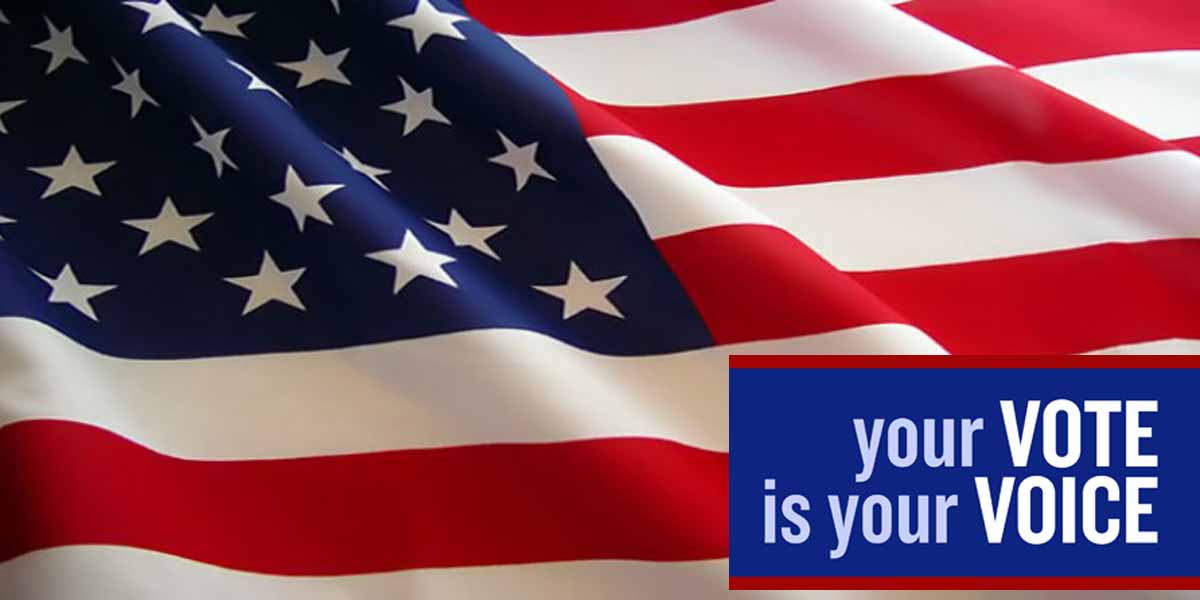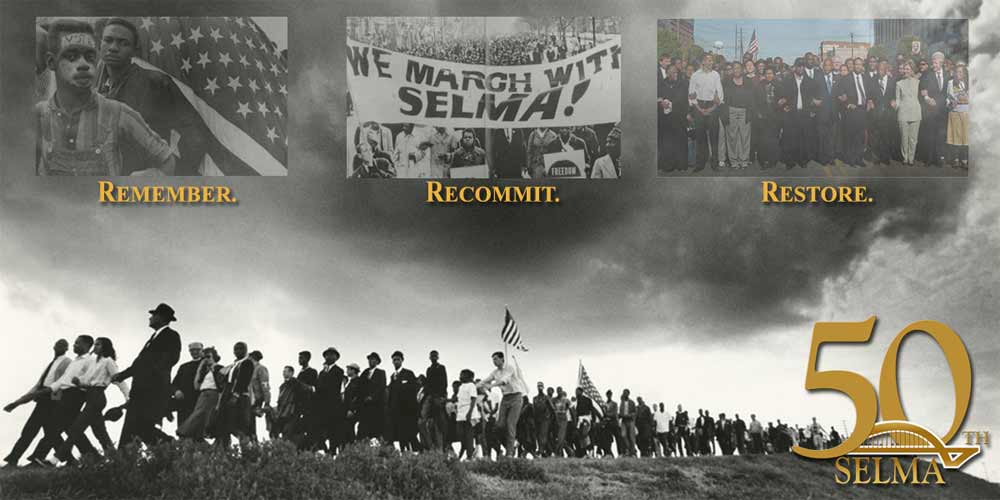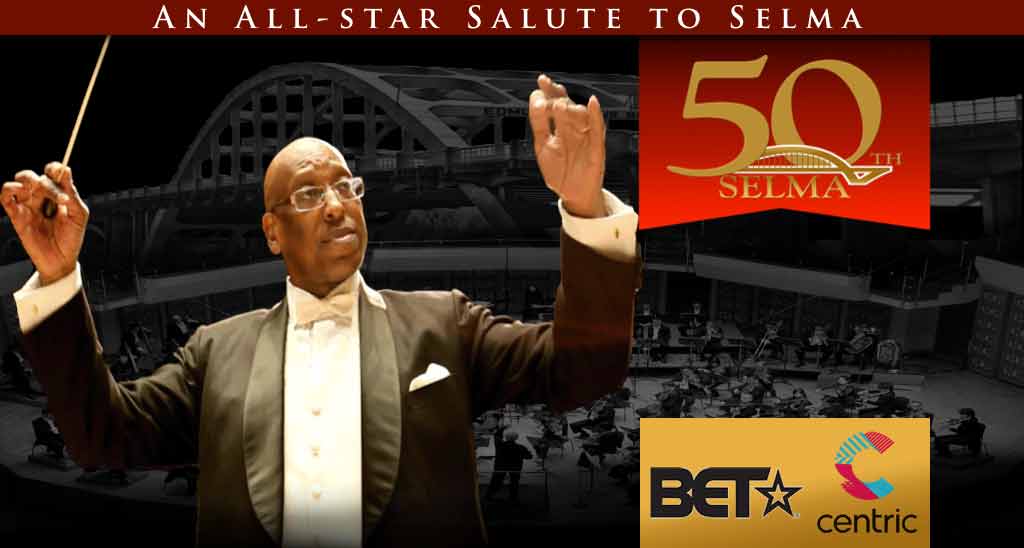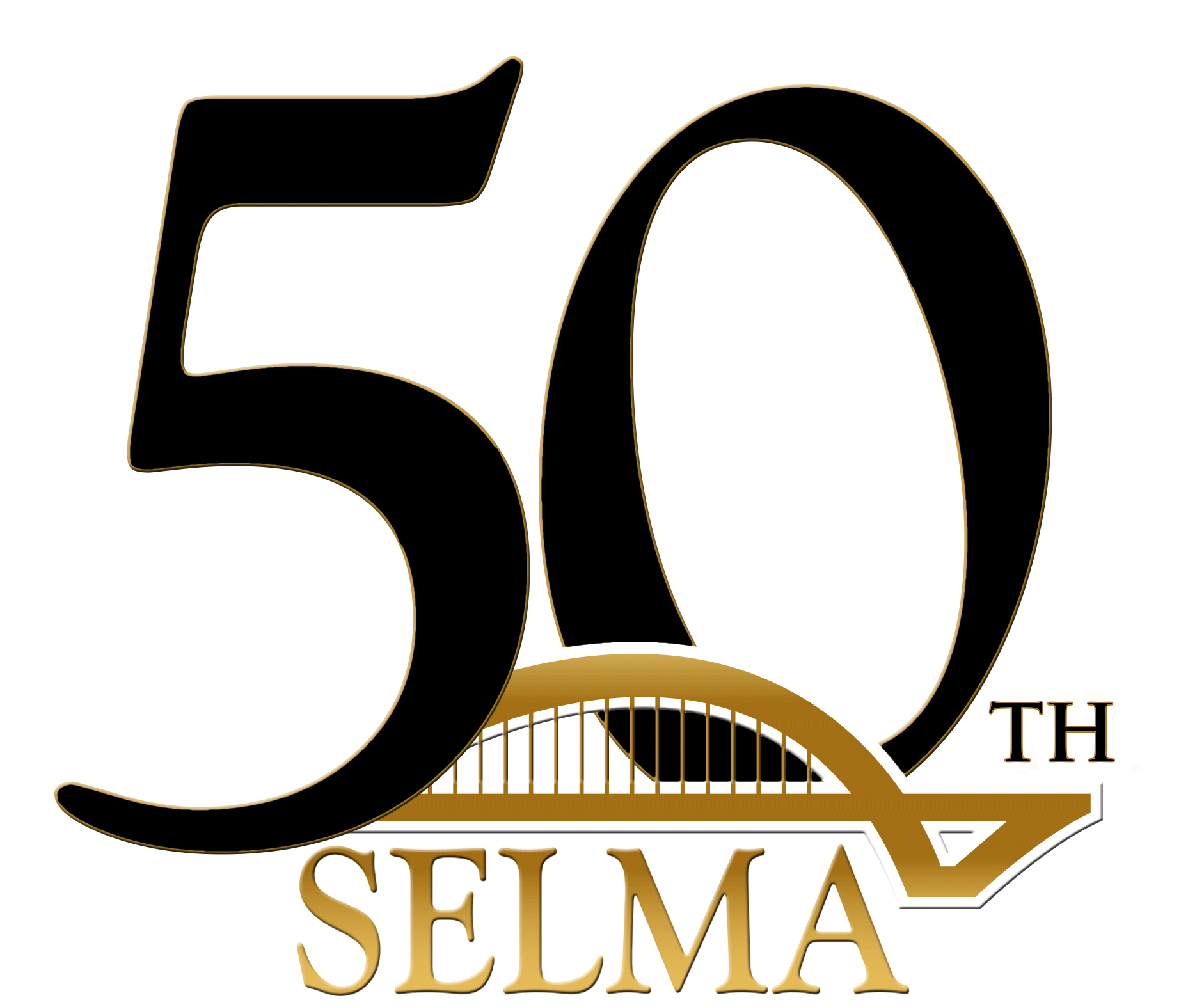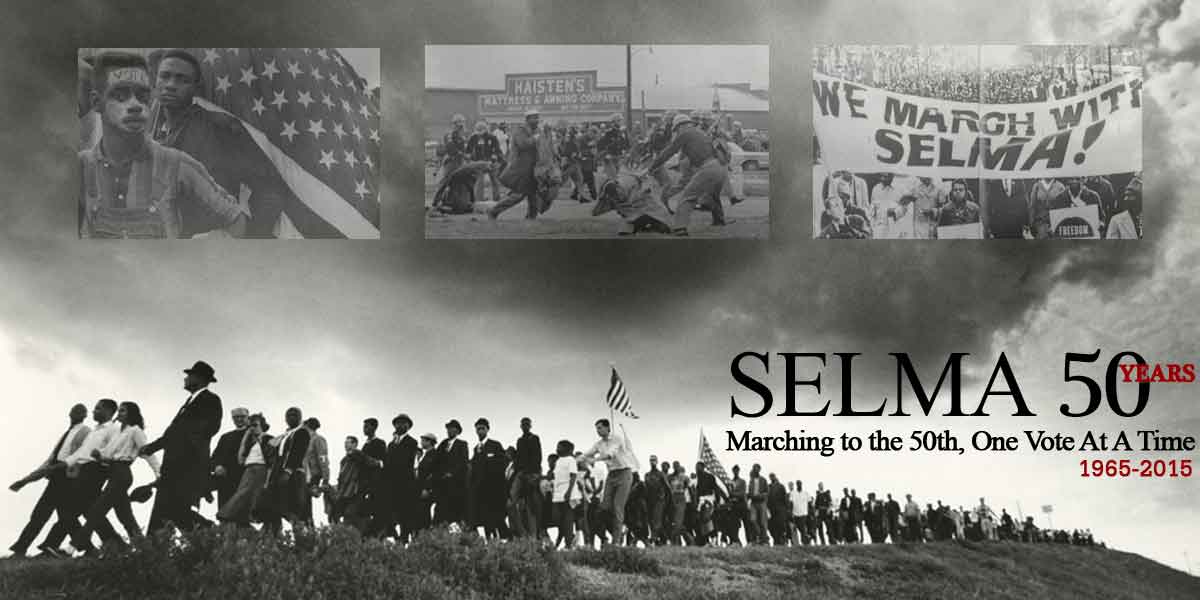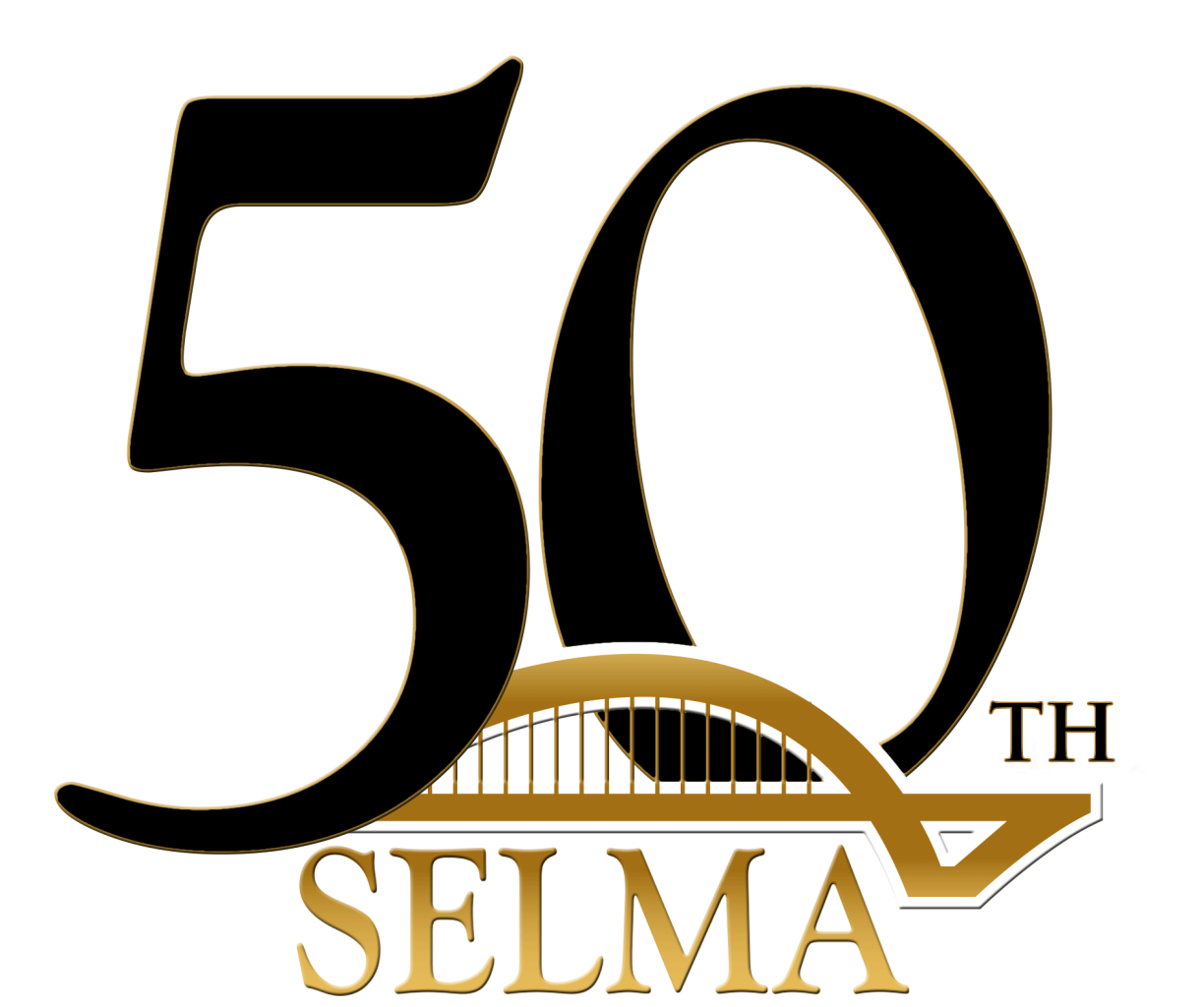 “Remember, Recommit, and Restore” is the 50th Anniversary theme of the Selma Bridge Crossing Jubilee that hosts an annual pilgrimage to honor the “Bloody Sunday” March across the Edmund Pettus Bridge on March 7, 1965. The 2015 Jubilee features more than 50 events, 40 of them free, in the City of Selma March 5-9.
“Remember, Recommit, and Restore” is the 50th Anniversary theme of the Selma Bridge Crossing Jubilee that hosts an annual pilgrimage to honor the “Bloody Sunday” March across the Edmund Pettus Bridge on March 7, 1965. The 2015 Jubilee features more than 50 events, 40 of them free, in the City of Selma March 5-9.
Thousands of people across the country and the world will descend on Selma to commemorate Bloody Sunday with the annual march across the Edmund Pettus Bridge on Sunday, March 8. They will walk with the remaining foot soldiers of that time from Alabama, Georgia and Mississippi. A new generation of civil rights activists and groups who have organized in the wake of high-profile cases such as those involving Trayvon Martin, Michael Brown and Eric Garner are expected to join them.
Jubilee planners want to focus attention on the Voting Rights Act of 1965, a set of federal protections created as a direct result of Bloody Sunday and the Selma-to-Montgomery marches led by civil rights icon Dr. Martin Luther King, Jr. as depicted in the movie, “Selma.”
“This year is bittersweet because we love the attention the movie has brought to my city and this annual event,” says Catrena Norris Carter, Executive Director of the Selma to Montgomery 50th Commemoration Foundation, which sponsors the Jubilee. “But the celebration is overshadowed by the reality that our own U.S. Supreme Court recently gutted the 1965 Voting Rights Act.”
“We have to remind the people coming here that our future is not secure unless the protections under the Voting Rights Act are fully restored so that all citizens have full and free access to the polls to elect officials to represent their best interests,” she says. “So we want everyone coming to this year’s Jubilee to remember the past sacrifices that brought us thus far, and to personally recommit to securing the voting rights of every citizen. Write and call your Congressional representative, urging them to fully restore the protections under the Voting Rights Act. Hence, the reason behind our theme this year: Remember, Recommit, and Restore.”
A number of congressional leaders are expected to come to Montgomery and Selma at the request of U.S. Congressman John Lewis and his Faith & Politics Institute, which hosts an annual Congressional Pilgrimage to Birmingham, Montgomery and Selma. Faith & Politics has also invited all the living Presidents to attend, including the sitting President, Barack Obama.
President Obama is expected to appear in Selma on Saturday, March 7, the actual anniversary of the Bloody Sunday March that Lewis, then a member of the Student Nonviolent Coordinating Committee, led with Hosea Williams and other members of Dr. King’s Southern Christian Leadership Conference (SCLC).
Other civil rights organizations recently announced joint efforts to ensure unity in the commemoration of Bloody Sunday on Sunday, March 8.
While they are here, Carter says, the Jubilee organizers and state activists hope to impress upon the congressional leaders the urgency to properly amend the gutted Voting Rights Act, per the Supreme Court’s directives, and put Alabama back under federal oversight.
“While we have overcome in so many ways, the last few years have shown us that we still have a long way to go,” Carter says. “The uprising in Ferguson over the death of Michael Brown and in New York over the death of Eric Garner underscore built up tensions over covert racism that still infects too much of our society. The vote is a powerful tool to help combat problems like miscarriages of justice. The movie Selma shows how, once people got the right to vote, they put Jim Clark with his racist leadership, out of office.
“Younger generations must be re-educated about the story of Selma, that the fight then wasn’t easy nor without sacrifice. But like those leaders then, they have the power to make the change they want to see. Change may not come as fast as they want, but it will come as long as they remember they are part of a grand, long-term Freedom Movement for justice.”
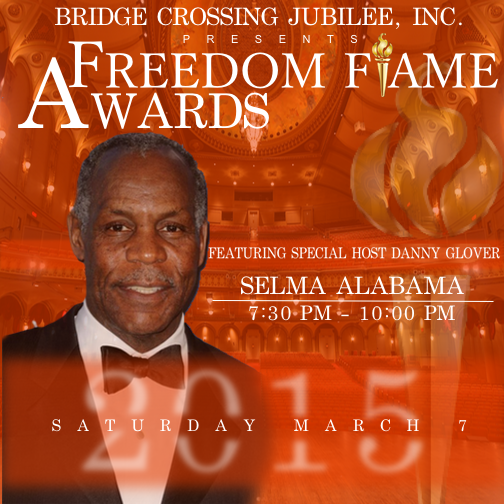 Jubilee events include the Freedom Flame Awards, which honors civil rights soldiers of the past. This year’s honorees include Harry Belafonte, Amelia Boynton-Robinson, Dr. Dorothy Cotton, Dick Gregory, Delores Huerta, Rev. Jesse Jackson, Sr., John Jackson, Congressman John Lewis (D-GA).
Jubilee events include the Freedom Flame Awards, which honors civil rights soldiers of the past. This year’s honorees include Harry Belafonte, Amelia Boynton-Robinson, Dr. Dorothy Cotton, Dick Gregory, Delores Huerta, Rev. Jesse Jackson, Sr., John Jackson, Congressman John Lewis (D-GA).
Several Jubilee events also promote today’s generations of leaders.
The Turn Up Youth Summit on March 7 features an extraordinary group of nationally and internationally-renowned young leaders, paired with veterans of the voting rights movement who share their knowledge and experiences with youth who know little about the Freedom Movement that opened doors of opportunity for their generation. The lessons shared focus on how the struggle for voting rights and the importance of participating in our electoral process can alleviate the problems young America is currently facing.
Youth panelists include: Jonathan Lewis of the Positive Peace Youth Network (a national nonviolence organization), who is the protege’ of historic civil rights leader Dr. Bernard Lafayette, a co-founder of the Student Nonviolent Coordinating Committee (SNCC); Marypat Hector, National Youth Director of Rev. Al Sharpton’s National Action Network; Cierra Taylor, Political Director for the Dream Defenders, a Florida-based activist organization that grew out of the Trayvon Martin murder case; Jamira Burley, Executive Director of the City of Philadelphia Youth Commission; and Jeremy Ponds, Youth Director for the Southern Christian Leadership Conference (SCLC).
Adult panelists include Martin Luther King, III, eldest child of the civil rights icon, and David Turnley– Pulitzer Prize winning photojournalist and former personal photographer and advisor to Nelson Mandela during his presidency. Turnley is the author of Mandela! Struggle & Triumph.
The Emerging ChangeMakers Network is hosting its 10th annual Selma Leadership Summit 2015 on March 7 with a discussion, “Are We Moving Forward or Standing Still?” and the annual prayer brunch on March 8 with the theme “The Resurgence, Re-Imagination and Reward of Young Voices.”
On Sunday, March 8, the Jubilee ends after the annual bridge crossing with the “All-Star Salute to Selma” concert featuring some of the top names in gospel and R&B music. Renowned conductor Dr. Henry Panion III will lead his symphony orchestra and 1,000-voice choir to accompany the likes of Kirk Franklin, Ruben Studdard, Lady Tramaine Hawkins, Sounds of Blackness, The Blind Boys of Alabama, Richard Smallwood and more. In addition to the confirmations already received, other artists including The Clark Sisters, Fantasia, Kenny Lattimore, Bobby Brown and Mary J. Blige are trying to work out their schedules to appear.
More names are expected to be added to the list, as many celebrities want to be a part of the special celebration, including Quincy Jones III, Earth Wind & Fire, and Frankie Beverly & Maze. Panion hopes that his friend, Stevie Wonder, might also make a special appearance.
Download the most recent list of Jubilee events HERE.
For complete information about #Selma50 events during the Bridge Crossing Jubilee, visit the website www.Selma50.com.
About the Bridge Crossing Jubilee
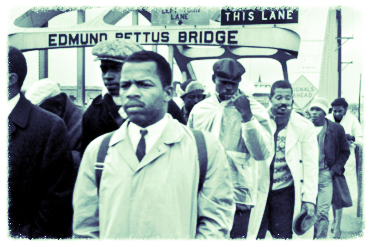 This annual event in Selma, Alabama, commemorates “Bloody Sunday,” which occurred March 7, 1965, when a group of about 525 African American demonstrators gathered at Browns Chapel to demand the right to vote.
This annual event in Selma, Alabama, commemorates “Bloody Sunday,” which occurred March 7, 1965, when a group of about 525 African American demonstrators gathered at Browns Chapel to demand the right to vote.
They walked six blocks to Broad Street, then across the Edmund Pettus Bridge, where they were met by more than 50 state troopers and a few dozen militiamen on horseback. When the demonstrators refused to turn back, they were brutally beaten. At least 17 were hospitalized, and 40 others received treatment for injuries and the effects of tear gas.
The attack, which was broadcast on national television, caught the attention of millions of Americans and became a symbol of the brutal racism of the South. Two weeks later, the Rev. Martin Luther King, Jr. and 3,200 civil rights protesters marched the 49 miles from Selma to the state capital, Montgomery, where they held a large rally on the steps of the Capitol Building where the Confederacy was born.
These events prompted Congress to pass the Voting Rights Act in 1965.
Every year on the first weekend in March, the Bridge Crossing Jubilee commemorates both the bloody confrontation at the Pettus Bridge and the march from Selma to Montgomery that followed. Events include a parade, a Miss Jubilee Pageant, a mock trial, and a commemorative march to the bridge. Every five years, celebrants continue all the way to Montgomery.
About the Weakened Voting Rights Act of 1965
In 2013, the U.S. Supreme Court made a devastating ruling in a lawsuit filed in Shelby County — part of the Birmingham, AL, metropolitan area — that challenged the pre-clearance provisions of the 1965 Voting Rights Act. Shelby County officials redrew the district lines of a black county commissioner, who lost his seat in a subsequent election. The local chapter of the National Association for the Advancement of Colored People (NAACP) said the officials needed federal pre-approval to make changes that diluted the voting power of the black citizens in the district.
In June 2013, the Supreme Court justices in 5-4 decision in Shelby County v. Holder ruled that the pre-clearance provision was outdated after 50 years and unfair to jurisdictions that had to prove any election changes were not discriminatory. Because the majority decided that the provision was unconstitutional, it was therefore legally unenforceable.
Immediately after the decision, several states, particularly North Carolina, instituted some of the strictest voter ID laws in the country. Critics called the laws bold and blatant attempts to suppress voting rights of minorities, students and the elderly who tended to support progressive policies.
To this date, Congress has not adopted any remedies that fully restore the protections that were guaranteed under the 1965 Voting Rights Act.


